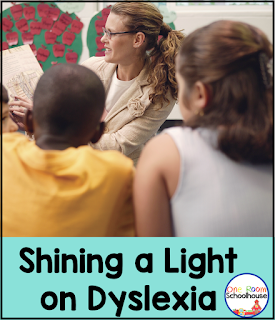Dyslexia, a neurodevelopmental condition, affects millions of individuals worldwide. Despite its prevalence, there is still a significant lack of awareness and understanding surrounding this learning difference.
What is Dyslexia?
Dyslexia is a specific learning disability that primarily affects reading and language-related skills. It is not related to a person's intelligence, and individuals with dyslexia have normal cognitive abilities. However, they struggle with reading, spelling, and sometimes, writing. Dyslexia can manifest in various ways and to varying degrees, making it a unique experience for each person.
The Impact of Dyslexia
- Educational Challenges: Dyslexic individuals often face difficulties in school. They may struggle with reading comprehension, spelling, and expressing their ideas in writing. These challenges can lead to frustration and a sense of being left behind in the educational system.
- Emotional and Social Impact: The struggles associated with dyslexia can impact a person's self-esteem and confidence. Many individuals with dyslexia experience anxiety, depression, and low self-worth as a result of their learning difficulties. This emotional toll can have long-lasting effects on their mental health.
- Misconceptions and Stigma: A lack of awareness about dyslexia can perpetuate misconceptions and stigma. Some people wrongly assume that dyslexic individuals are not intelligent or simply lazy, which is far from the truth. Raising awareness is essential to dispel these myths and foster empathy and understanding.
The Importance of Dyslexia Awareness
- Early Identification and Intervention: Awareness is the first step in identifying dyslexia in children and adults. The earlier dyslexia is recognized, the sooner appropriate interventions and support can be provided. This can significantly improve an individual's learning experience and self-esteem.
- Reducing Stigma: By increasing awareness, we can break down the stigma associated with dyslexia. It is not a sign of intellectual inferiority or laziness but rather a neurological difference that needs support and accommodation.
- Empowering Dyslexic Individuals: When society is informed about dyslexia, dyslexic individuals can feel more empowered to embrace their unique strengths and overcome their challenges. Dyslexia often comes with creativity, problem-solving skills, and unique perspectives that should be celebrated.
- Advocacy and Policy Change: Awareness can drive advocacy efforts to improve the educational system and workplace accommodations for dyslexic individuals. Public awareness can lead to changes in policies and practices that better support their needs.
How You Can Help
- Educate Yourself: Take the time to learn about dyslexia, its symptoms, and its impact. Understanding is the first step to empathy and support.
- Spread Awareness: Share information about dyslexia with friends, family, and colleagues. Use social media, blogs, and other platforms to raise awareness about this condition.
- Support Dyslexic Individuals: Offer your support to dyslexic individuals, whether they're in your family, at school, or in your workplace. Encourage them to seek help, and be patient and understanding.
- Advocate for Change: Support organizations and initiatives working to improve dyslexia awareness and support. Encourage policy changes that benefit dyslexic individuals.
Dyslexia is a common learning difference that affects countless individuals worldwide. Let's work together to create a more inclusive and compassionate world where dyslexia is acknowledged, accepted, and celebrated for the unique strengths it brings.



No comments
Post a Comment